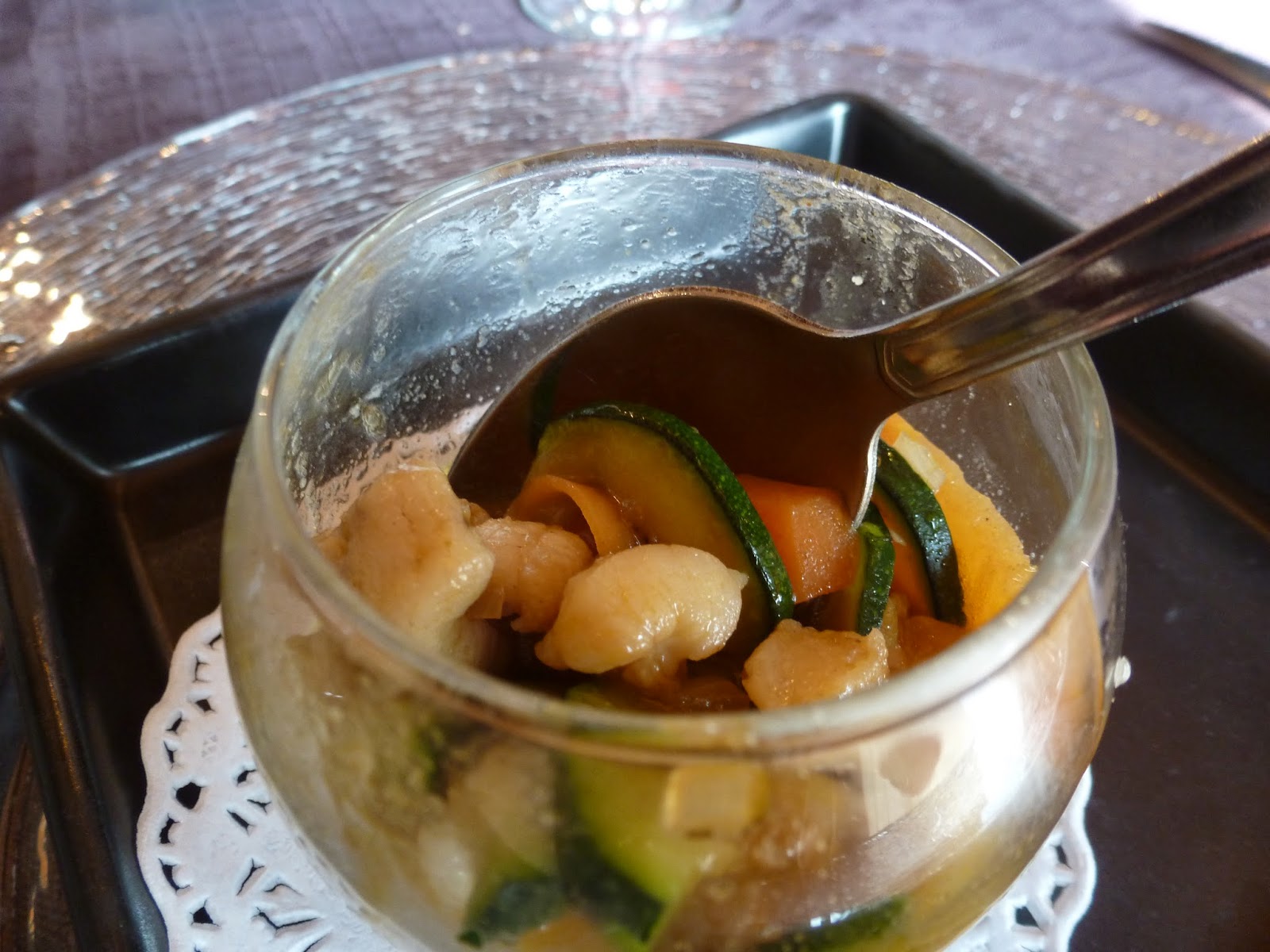 |
| The Salad version of Flammkuchen |
In Germany it’s called Flammkucken, or flame cake. In France, Tarte Flambée, or pie baked in the
flames. Then there’s the Alsatian name,
Flammekueche.
The origins of this regional dish are lost in somebody’s
nameless kitchen, in an area that’s bounced between Germany and France more
times than a Chinese ping-pong ball. If
you can’t even decide what to call it, how can you tell where it came
from? But ours is not to worry our pretty
little heads, but to find a good restaurant and stuff our bulging bellies. Found just the place. Flammkuchen Hütte, or
Flame Cake Hut, in Mehlingen, Germany. http://www.flammkuchen-huette.de
Easy to find. Relaxed
atmosphere. Excellent food. Gorgeous waitresses. Wine, beer.
Good prices. You need something
more? Are you out of your so-called
mind? Rather have milk and cookies
before you say nighty-night? I thought not.
When you say Flammkucken, it’s almost like saying pie. Wild
varieties, ranging from pizza-like toppings to fruit. The big differences I’ve found between pizza
and flammkuchen are the dough and the cheese.
The former has a relatively thick, yeasty dough and traditionally a very
melty cheese, such as mozzarella.
Flammkuchen, on the other hand, has a paper thin, almost cracker-like
crust, topped with a fresh, spreadable cheese, traditionally crème fraîche.
Which brings up the question: What
is crème fraîche ? It’s a soured cream, but not as sour as the
American version and with a thicker consistency. Think of a white, spreadable, sour cream
butter and you’ll almost have it.
I haven’t left you helplessly pondering.
In a former article, I even told you how to make your own flammkuchen:
One Friday evening, after a short drive, we joined some
friends for a group gorge. Great fun. Hey, this is Germany, with beer and wine in great abundance.
Several other things about the Flammkuchen Hütte stand out.
The casually rustic décor and the varieties of the eponymous
dishes. I ordered the more traditional
version, with chunks of bacon and a bit of onion. My companions opt for everything from salmon
to chili flecks, to salad, to current jelly.
 |
| Salmon |
 |
| The salads alone are worth the trip! |
 |
| Traditional bacon and onion. |
 |
| Chili flecks |
 |
| With red current jelly. |
The service is impeccable. Waitresses are full of smiles and
flourishes that make you feel as if you’ve been here a dozen times. Always nice to feel wanted.
The pies arrive on wooden platters, adding to the hunter’s
cabin-like atmosphere. This is
definitely a place to drink beer or wine with a raucous crowd, intent on
inebriation and gluttony. In other
words: my usual friends.
But, the atmosphere, service, and company would all be
superfluous if the food didn’t measure up.
No worries! This is Flammkuchen as
it should be: Thin and crispy, bubbling
toppings, straight from the flames. You
can cut it, or just break off bits and pieces.
I noticed, once the pies arrived, the conversation dwindled,
as emphasis shifted to the time honored ritual of hand to mouth. You’d think from the size of the pies, one
order would feed two people. Not
so. Not here. Not ever.
Bookmark the Flamkuchen Hütte! For an impromptu gathering with a group of
friends, this one should be at the top of your list.




























